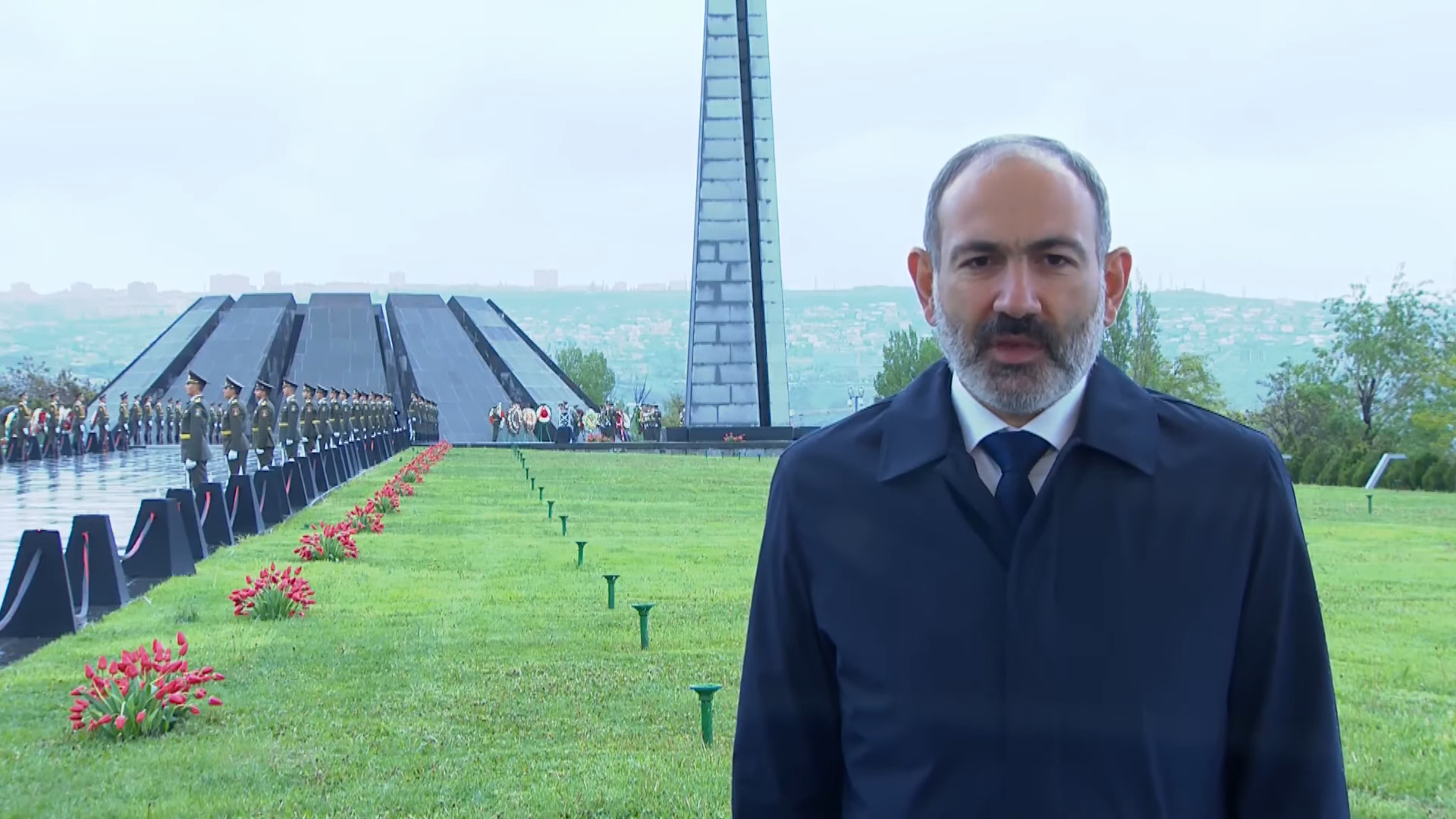Prime Minister Nikol Pashinyan’s message on the occasion of the 108th anniversary of the Armenian Genocide
“Dear people,
Dear Compatriots,
On April 24, we commemorate the 1.5 million victims of the Armenian Genocide carried out by the Ottoman Empire at the beginning of the 20th century, and tens of thousands of citizens will carry out a procession of respect, remembrance and meditation to the Tsitsernakaberd Memorial.
The April 24 march is perhaps the most impactful occurrence that has predetermined and is predetermining our reality, an exceptional day to think about our history, past and future. What do young parents think when walking to the Tsitsernakaberd memorial, often holding the hands of young children, or what do elderly people with more life experience think?
They are probably thinking about two questions. Why did the Meds Yeghern happen and what should be done to prevent its recurrence? Hundreds and thousands of works have been written about the causes of the Armenian Genocide, many reasons and motives have been revealed. As for the methodology to exclude the recurrence of such a crime, it largely depends on our understanding of the concepts of “state” and “region”.
The state, only a developed and sovereign state is able to ensure the existence and security of our people, and everyone has something to do for the establishment of the state – with education, work, civil responsibility and respect for law.
Our strategic choice for the region is as follows. do we have the will and ability to normalize and develop our regional relations, regardless of, or even more so, when the existing security threats around us worsen due to regional or extra-regional reasons?
Realizing all the difficulties and complications, our government has decided to go the way of finding a positive answer to that question, because only that way can guarantee security and well-being.
Dear people,
Dear Compatriots,
Today we bow to the memory of the 1.5 million victims of the Armenian Genocide and ponder about the past, present and future. And this is the best moment to think about the past, present and future.”















